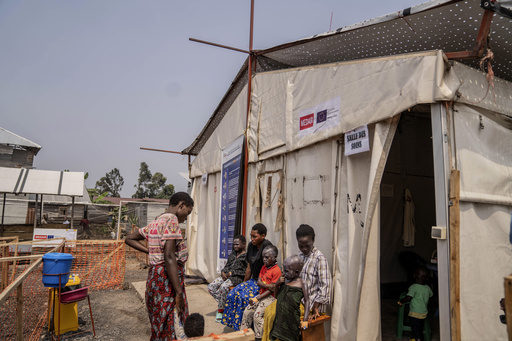Congo’s Health Minister announced that the country is set to receive its first doses of the mpox vaccine next week from the United States, following the recent declaration by the World Health Organization of mpox outbreaks in Africa as a global emergency. Mpox cases have been identified in several African nations, mainly affecting children and adults, with a new variant of the virus emerging. The availability of vaccine doses in Africa is limited, intensifying the urgency of the situation.
Congo is experiencing the highest number of mpox cases and urgently requires 3 million vaccine doses. Both the U.S. and Japan have pledged to donate vaccines to assist in the outbreak. Health Minister Roger Kamba mentioned that the specifics regarding the quantity of doses to be provided and the timeline for Japan’s donation were not disclosed at the time.
The World Health Organization has documented over 17,000 mpox cases and 500 fatalities globally this year. The overwhelming majority of cases and deaths have occurred in Congo, where the healthcare system faces significant challenges in managing disease outbreaks across the expansive territory and inadequate infrastructure. Children under 15 constitute more than 70% of the cases and 85% of the fatalities in Congo.
There are concerns among scientists regarding a new strain of mpox in Congo that appears to be more transmissible. Sweden recently reported its first case of this new variant, with authorities assessing the risk to the public as “very low,” while anticipating sporadic imported cases to persist.
In contrast to previous outbreaks where symptoms typically manifest on the chest, hands, and feet, the new variant of mpox causes milder symptoms with lesions appearing on the genital area. This alteration makes detection more challenging, potentially resulting in individuals unknowingly transmitting the virus as it requires close skin-to-skin contact to spread and is not airborne.
The World Health Organization noted the emergence of mpox for the first time in four East African countries: Burundi, Kenya, Rwanda, and Uganda, all of which were connected to the epidemic in Congo.


